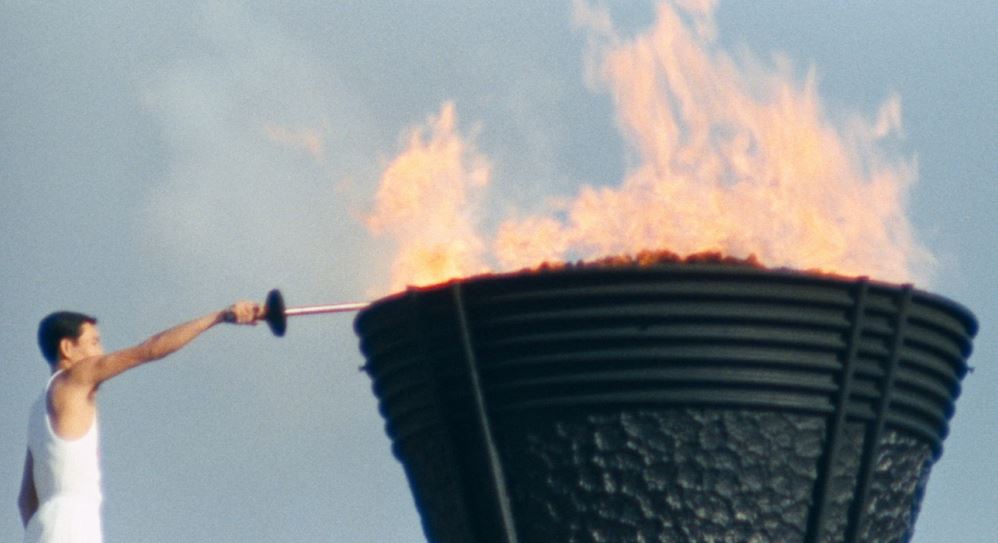
Image Source: © International Olympic Committee – all rights reserved
Screening: Tokyo Olympiad by Ichikawa Kon
- 2 September - 6 November 2021
- Japan House London, 101-111 Kensington High Street, London W8 5SA
- https://www.japanhouselondon.uk/whats-on/2021/screening-tokyo-olympiad-by-ichikawa-kon/
- info@japanhouselondon.uk
- Tweet
In conjunction with the exhibition Tokyo 1964: Designing Tomorrow, Japan House London is delighted to introduce a series of free screenings of the pioneering documentary Tokyo Orinpikku (Tokyo Olympiad, released in 1965) by filmmaker Ichikawa Kon, a key figure of Japan's ‘Golden Age’ of cinema in the 1950s.
Commissioned by the Japanese Olympic Organizing Committee, Ichikawa’s revolutionary documentary of the Tokyo 1964 Olympic Games blends together a portrayal of the humanity of the competing athletes with cutting-edge technological achievement, such as the use of telephoto lenses, widescreen images, freeze-frames, dramatic slow-motion sequences, and many other visual effects.
It is regarded as one of the greatest films about sport of all time. Rather than a celebratory representation of Japanese victories, the film takes a more personal, emotional and authentic approach, with Ichikawa focusing on the human body and its struggles and limitations during the Games, capturing a new vision of the athletes and their sporting performances.
Screening Dates:
- Thursday 2 September 2021, 17:30
- Saturday 2 October 2021, 15:00
- Wednesday 3 November 2021, 17:30
- Saturday 6 November 2021, 15:00
English subtitles. Duration: 170 minutes (2 hours 50 minutes)
More dates may become available. Please refer to the Japan House London website for details.
About the Director
Ichikawa Kon (1915–2008) was a major figure in Japanese post-war cinema. His films examined the tensions and changes that characterized this period. He graduated from the University of Tokyo in 1933. His early films were comedies, though he also created social dramas in which misfits and outsiders struggle against the pressures of a new Japan, in addition to several notable literary adaptations. It was the films he made with a strong anti-war message that brought him to the attention of those outside Japan. Many of his most powerful works were scripted by his wife Wada Natto including The Burmese Harp (1956) and Conflagration (1958) based on a novel by Mishima Yukio.
